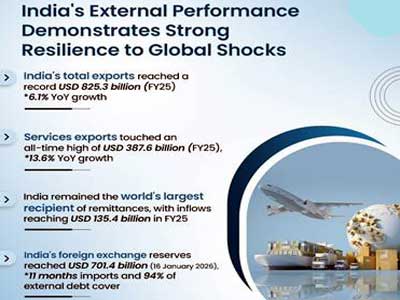Have you attended a five-day-long destination wedding recently? Never mind, if you have not. But you might have seen video clips of Ambani's wedding.
The rise of the Indian affluent class, coinciding with a burgeoning economy, the glitter and pomp of celebrities' celebrations, have distorted the ancient values associated with the sanctity and dignity of marital alliances now transformed into theatrical events held at mega-resorts, farmhouses, rented palaces or on sailing ships.
Read in Hindi: शादी समारोहों में झलक रहा है समाज का विकृत चेहरा..!
Liberalization and free market economy forces have significantly impacted Indian marriages, transforming them into extravagant events to flaunt newfound wealth. Wedding planners and event managers arrange Russian dancers, Bollywood entertainers, helicopter rides, drone photography, laser shows with amazing fireworks, international cuisines, and uninterrupted liquor supply in five-star comforts.
Social reformers struggled for decades to simplify marriage ceremonies at low cost, but the scene today is despicably vulgar and filthy as unimaginable expenses are incurred on flaunting hypocritical hollowness. Social activist Padmini Iyer says, "The institution of marriage, once a sacred and intimate affair, has been transformed into a spectacle of ostentation in modern India. The relentless pursuit of lavish celebrations, fueled by societal pressure and the desire to flaunt wealth, has obscured the true essence of this sacred union."
Gone are the days of simple, heartfelt ceremonies. In their place, we witness extravagant destination weddings, opulent cruise ceremonies, and elaborate celebrations that dwarf even the most extravagant Hollywood affairs. These events, often drenched in pomp and show, turn what should be a personal and sacred commitment into a contest of affluence. "The focus has shifted from the union of two souls to the grandeur of the occasion, with exorbitant expenses and excessive displays of wealth becoming the new norm," according to Prof Paras Nath Choudhary, a social commentator.
The allure of spurious culture has seeped into the very fabric of Indian weddings. Outdated rituals once imbued with spiritual significance, are now flaunted for their sheer ostentation. "The dances, the costumes, the ambience, for the haldi ceremony or the mahila sangeet, are huge events, costing exorbitant amounts to the parents of the bride," says school teacher Mira Khandelwal. Brides and grooms, caught in the whirlwind of societal expectations, feel pressured to conform to a rigid template that prioritizes material wealth over genuine love and companionship, she adds.
The legacy of traditions has been twisted into a caricature, where the emphasis lies on the superficial rather than the substantive, adds Mukta Gupta, a social activist from Mysore. She adds, "Even so-called 'love marriages,' once celebrated as symbols of progressive thought, have become tainted by the influence of this materialistic culture. Inter-caste marriages, which should represent a bold step towards unity, are often overshadowed by the need to adhere to antiquated customs and extravagant displays of wealth. The focus shifts from the union of two individuals to the grandiosity of the occasion, perpetuating a cycle of consumerism rather than meaningful connection."
The consequences of this lavish lifestyle extend far beyond the couple. Families without substantial resources are left either scrambling to meet societal expectations or sinking into debt to emulate the luxurious displays of wealth they see around them. The financial burden of dowry and wedding expenses has skyrocketed, particularly in upper-middle-class families, with some expenditures reaching astronomical figures. Meanwhile, business tycoons flaunt their wealth by spending exorbitant sums on celebrations that offer no guarantee of marital durability.
This culture of excess not only underscores a deep-seated inequality but also perpetuates a superficial understanding of marital commitment. The sanctity of Hindu marriages, meant to be a sacred bond formed in the presence of family and community, is disrespected by the vulgarity of lavish celebrations. Instead of fostering lasting relationships built on love, trust, and respect, these displays prioritize status and wealth, leading to a deeper societal malaise.
As a society, we must question the implications of such ostentation. It is time to redefine our values, moving away from superficiality and focusing on what truly matters. Marriage should be celebrated for the journeys it represents, with an emphasis on unity, respect, and genuine love, rather than monetary extravagance. The future of Indian marriages lies in stripping away the layers of excess and returning to the core values that promote sustainability, emotional connection, and mutual support. By embracing simplicity, prioritizing substance over style, and fostering meaningful connections, we can reclaim the true essence of marriage.
















Related Items
India rises as a ‘Global Medical Travel Destination’
Pakistan must take initiative for peace, or face Indian wrath...
Values are falling in society, and shamelessness is increasing...